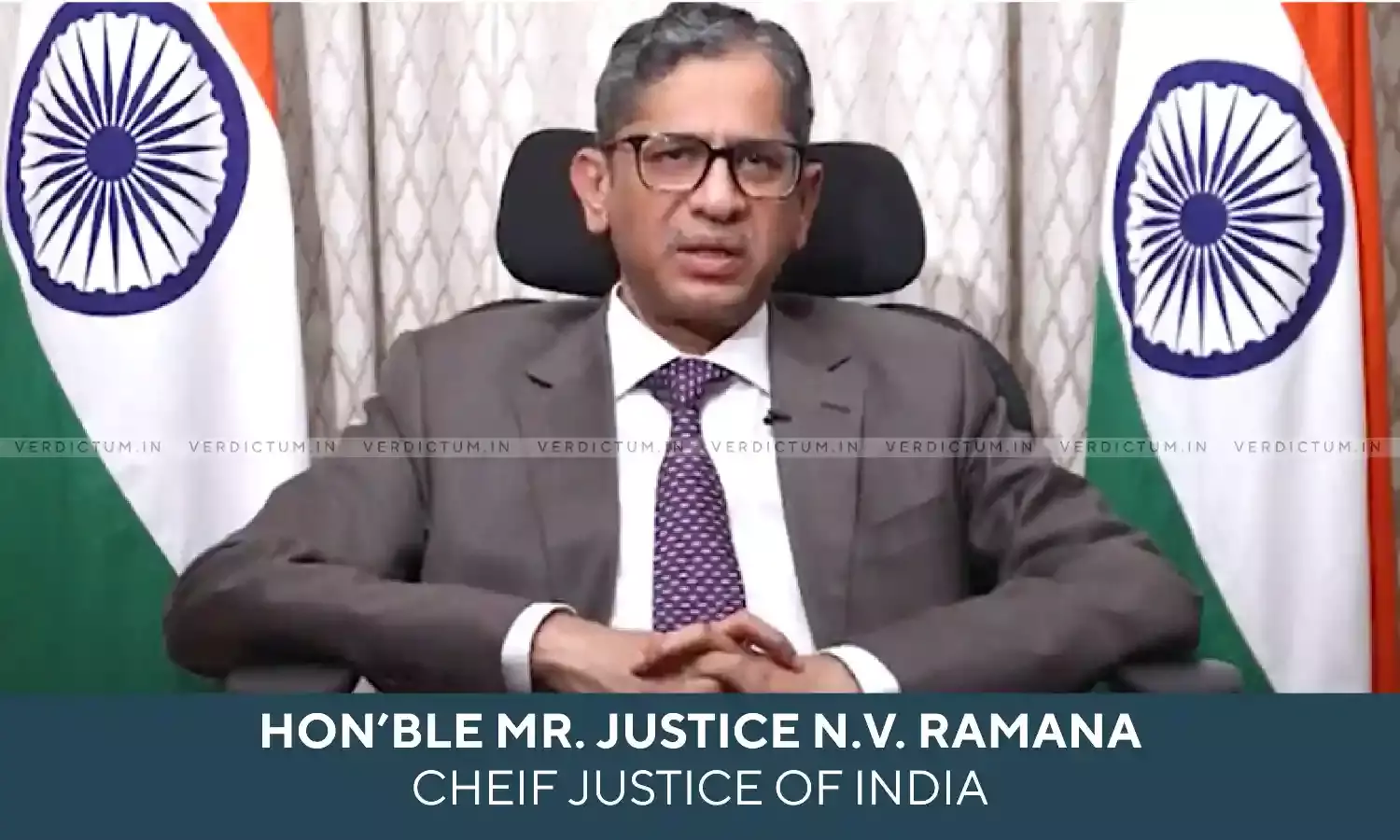Politics Is Not Relevant For Judges: CJI N V Ramana

Politics is not relevant after becoming a judge and it is the Constitution that guides the judges, Chief Justice of India N V Ramana said on Monday.
The CJI also said that India's vast social and geographical diversity must find its reflection at all levels of the judiciary, contending that it will improve efficiency.
Justice Ramana was speaking at the '2nd Comparative Constitutional Law Conversation' along with United States Supreme Court Judge Justice Stephen Breyer.
The CJI said that he agreed with Justice Breyer's view that the "job of the judge is not political".
"I really laud the statement of Justice Beyer - 'job of the judge is not political'. It is a really wonderful statement. Once we have taken oaths of the Constitution, once you start working as a judge, I think politics is no more relevant. It is the Constitution which guides us. This is the principle anywhere," he said.
The online event was organised by Society for Democratic Rights, New Delhi and the Georgetown University Law Centre, Washington D.C. on the topic "Comparative Approaches of Supreme Courts of World's Largest Democracies".
On the aspect of inclusivity in the Indian judiciary, the CJI said that although presently the Supreme Court is functioning with four women judges, the highest number so far, he expects more and inclusivity does not stop with having more women judges.
The CJI noted that India has a population of nearly 140 crore, with around 120 languages, thousands of dialects, more than 4,000 communities and more than 700 tribes.
This social and geographical diversity must find its reflection at all levels of the judiciary as diversity on the bench promotes diversity of opinions and efficiency, he said.
"With the widest possible representation, people get to feel that it is their own judiciary. Diversity in the bench promotes diversity of opinions. Diversity enhances efficiency. People from different backgrounds enrich the Bench with their diverse experiences", Justice Ramana said.
"A judge from a rural background understands the issues of rural India better. A judge from a particular region understands the issues of that area better. A judge from marginalised sections understands the issues of the marginalised better," he said.
Speaking on the issue of PILs, CJI Ramana acknowledged that although there are limitations to PIL, which are the result of the Supreme Court's innovation, the overall net outcome has been encouraging.
"Because of the proactive approach of the Supreme Court, PIL became a tool of empowerment for those without a voice. It generated awareness about the rights of the people," he said.
The Supreme Court has been monitoring various issues through continuing mandamus. Issues of environment, protection of human rights and long-pending cases against elected representatives are being monitored.
"PIL has prevented gross abuse of executive power, checked corruption and sought accountability. I agree, it has limitations. The Supreme Court and high courts have also imposed certain restrictions to prevent misuse. But the net outcome is very positive," the CJI said.
Justice Ramana said the spirit of the American and Indian constitutions is the same. "The object is that the people of the country must abide by the rule of law and ultimately it is the people's view that is sovereign. We have to respect it. Ultimately, we will uphold Constitutional values," he said.
The CJI said there is a clear-cut separation of powers of the three organs of the Constitution, "so there is no problem in interpreting any of the issues".
Referring to the inadequate judicial infrastructure, Justice Ramana said, "From my days as an advocate, I have been noticing the poor condition of courts. Judicial infrastructure in India remains one of the most neglected areas. This subject was on my priority list."
"Soon after assuming the office of the Chief Justice, I asked the registry to conduct a survey. The results were disappointing. In the interest of increased access to justice, I had to take it up on an urgent basis. The focus is on expansion of infrastructure and modernisation," he said.
The pandemic proved that modern technology has to be an integral part of infrastructure, he said. "What we need is world-class infrastructure. Courts should be welcoming and carry the requisite dignity. That is why I have proposed the creation of independent statutory authorities at the national and state level", CJI said.
"Such authorities, with functional and financial autonomy, would ensure timely execution of modernisation projects with uniformity and standardisation," he added.
On the issue of retirement, the CJI said that 65 years is too early for someone to retire. He said, "In the Indian judiciary, at the time of joining, we know our date of retirement. There are no exceptions. I am still left with a decent amount of energy".
"I am the son of an agriculturalist and left with some land to cultivate. I am a man of people... and I hope I will find the right avenue to invest energy. Retirement from the judiciary does not mean retirement from public life," he said.
On legal aid, Justice Ramana said there are around 45,000 para legal volunteers and nearly 12,000 legal services clinics functioning all over the country. "Providing legal aid to the undertrials is another significant contribution of these authorities. We have legal services clinics in jails as well which provide assistance to the undertrials and the convicts," he said.
Click here to view video of the event
With PTI inputs

